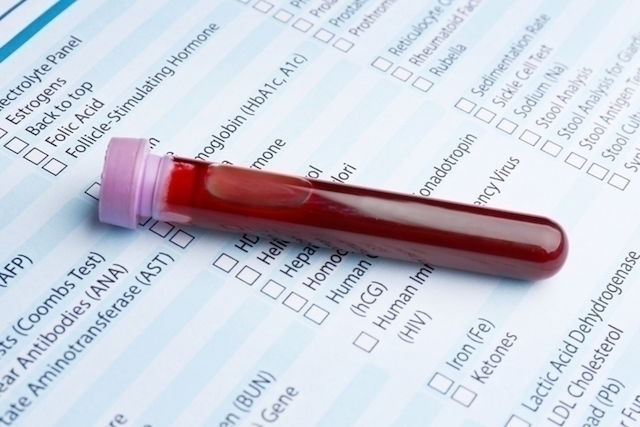What is it:
A GGT blood test is normally ordered to assess for liver injury or biliary obstruction. Both of these conditions will usually result in an elevated GGT level.
Gamma glutamyl transferase is an enzyme that is mainly produced by the pancreas, heart and liver. Levels can become high if any of these organs become compromised from illnesses like pancreatitis, a heart attack or cirrhosis. To reach a liver or biliary disease diagnosis, doctors will typically order the GGT test along with other tests like AST, ALT, bilirubin, and ALP.
The GGT test can be ordered as part of a routine work-up, or if the doctor suspects a specific condition like pancreatitis. This test is most recommended to assess for cirrhosis, fatty liver and alcohol abuse. Although the reference range can vary from lab to lab, normal GGT levels are usually between 7 and 50 UI/L.

What an abnormal GGT means
GGT levels should always be interpreted by a health care professional, particularly by the ordering physician. GGT can become abnormal for the following reasons:
High GGT
Elevated levels are usually a sign of a liver problem like:
- Chronic viral hepatitis
- Decreased blood flow to the liver
- Liver tumor
- Cirrhosis
- Excessive alcohol or drug use.
Noentheless, the GGT test is not specific and should be used in conjunction with other tests, (like a CT scan, ultrasound or other blood work) to confirm a diagnosis. Learn about symptoms of liver disease that may appear with a high GGT result.
In rare cases, GGT can also become high due to non-liver conditions, like cardiac failure, diabetes or pancreatitis.
Low GGT
Low GGT levels are not of clinical significance and do not indicate any type of liver issue or alcohol abuse.
However, patients with low GGT levels and high ALP levels may have another health condition, like bone or musculoskeletal problems, vitamin D deficiency, or Paget’s disease, which should be confirmed with further testing.
How to prepare for the blood test
Before completing this blood test, you should fast for at least 8 hours, as GGT levels can dip after eating. You should also avoid drinking alcohol for 24 hours before the test, as alcohol can alter the results. Some medications should also be held prior to the test, as they can increase the concentration of this enzyme.
You should tell the lab tech and/or your doctor the last time you consumed alcohol so that it can be taken into consideration when levels are interpreted.
GGT testing indications
The GGT test is usually ordered when the doctor suspects a liver injury, especially if the patient presents with symptoms like:
- Notably decreased appetite
- Vomiting and nausea
- Decreased energy
- Abdominal pain
- Yellow skin and eyes
- Dark urine
- Pale stools
- Itchy skin
In some cases, GGT testing can be ordered for people undergoing alcohol detox.






























